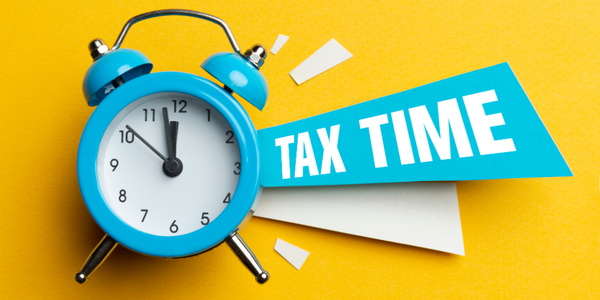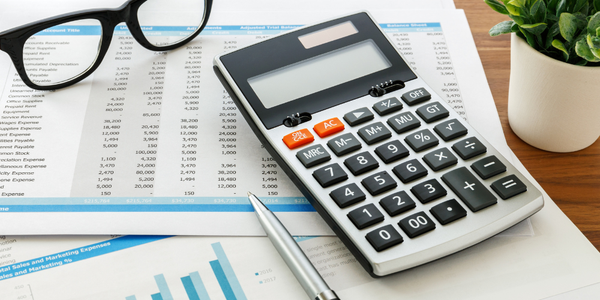How to Get a Forex Trading License in Dubai: Step-by-Step Guide

If you are serious about starting a forex trading company, Dubai is one of the best places to build credibility and access global markets. However, in Dubai, forex trading is a regulated activity, and to conduct it legally, a license is required.
This license is your passport into the city’s financial ecosystem. It tells regulators, clients, and partners that you are playing by the rules. And in return, you get access to one of the safest and most rewarding trading landscapes in the world.
So, how do you actually get this license? Let us walk through it step by step.
Why Dubai Is on Every Trader’s Radar
Dubai did not become a financial hub by accident. The city spent years building the right conditions. Free zones, global connectivity, investor protection laws, and zero tax on capital gains or trading profits.
That last point alone makes traders pay attention. Unlike many other financial centers, you keep what you earn. Add to that the credibility of being licensed in a market that takes regulation seriously, and it is easy to see why forex firms and individual traders set up shop here.
Who Is in Charge?
There are a few regulators who have a say when it comes to getting a forex license in the UAE. Here are the three main ones:
- Securities and Commodities Authority (SCA): This is the main regulator for anywhere in the mainland of the country of the UAE.
- Dubai Financial Services Authority (DFSA): These are the ones that oversee the Dubai International Financial Centre (DIFC), which is the main financial hub.
- Financial Services Regulatory Authority (FSRA): They are the ones that have the responsibility for the Abu Dhabi Global Market (ADGM), which is another main financial free zone.
You might be thinking, “What about the Central Bank?” And you would be right to ask. The Central Bank of the UAE (CBUAE) is a top regulator for banks and other monetary policies, but the 3 above are the ones you will usually work with to get your forex brokerage license.
All of the regulators above require a high level of standards from the firms they regulate in order to make sure the market is safe. So, that means your application needs to be solid.
Your 5-Step Application Process
Getting a forex license might feel like a big mountain to climb, but with the right plan and patience, it is a clear path. Here is how to navigate it step by step
Step 1: Do Your Homework
Start with a solid business plan, as it is your roadmap. Decide what services you will offer, who your target clients are, and what makes your business unique. Map out capital needs and understand the rules of the market you want to enter. The clearer your vision, the smoother the journey.
Step 2: Choose Your Jurisdiction
In the UAE, where you set up matters. Do you want the mainland under the Securities and Commodities Authority (SCA), or a free zone like the Dubai International Financial Centre (DFSA) or Abu Dhabi Global Market (FSRA)?
Your choice affects costs, legal requirements, and what you can do as a business, so pick wisely. For example, for a forex license under the DFSA in the DIFC, the requirements are significant.
You must have a minimum capital of $500,000 and pay substantial application and annual fees. The license also mandates a physical office in the DIFC and the appointment of key personnel, such as a Compliance Officer, who must be based in the UAE.
Step 3: Build Your Dream Team
Next, you need to hire a trusted legal or business setup consultancy like 10xM to guide you through the paperwork and requirements. At the same time, line up your key personnel, like your CEO, compliance officer, and finance officer, who will need approval from the regulator.
Step 4: File Your Application
Finally, submit your formal application, including your business plan, financial projections, compliance manual, and documentation for key personnel. Expect detailed questions from the regulator. Answer them clearly and promptly to keep things moving.
Step 5: Launch and Keep Growing
Congratulations, you are licensed! But the journey does not stop here. You will need to meet ongoing requirements, from capital adequacy to audits and compliance reporting. Staying on top of these builds trust, credibility, and sets your business up for long-term success
What Regulators Expect
Here is a brief summary of the requirements.
- A business plan with clear financial projections.
- Share capital of at least $500,000 USD, with some regulators requiring up to AED 5 million.
- Qualified staff, including compliance officers.
- Payment of application and renewal fees.
- Readiness to handle ongoing audits, training, and compliance checks.
Important Note: You must be prepared to handle continuous obligations, including regular audits, financial reporting, and strict adherence to anti-money laundering (AML) and know-your-customer (KYC) regulations.
How Much Will It Cost You
Getting a forex license is a serious investment. For a company, the minimum capital requirement starts at $500,000 for top-tier regulators like the DFSA and can be even higher. When you include substantial fees and operational costs, the total investment to launch a brokerage can easily exceed $1 million.
For individuals, the numbers are manageable. For companies, it is a serious investment, but one that opens doors to global markets.
Different Licenses for Different Goals
Dubai does not use a one-size-fits-all approach. You choose a license that matches your ambition.
- Authorized Firm: For companies that provide a wide range of financial services.
- Authorized Market Institution (AMI): For companies that operate exchanges or trading platforms.
- Representative Office: For marketing and networking, with no direct trading.
- Authorized Individual: For professionals in key roles (e.g., CEO) within a licensed firm.
- Innovation Testing License (ITL): For fintech startups to test new ideas in a controlled environment..
The choice of license defines your business model and operational scope in the market.
The Legal Backbone
Behind the application process are strict laws. They are what make Dubai’s forex sector trustworthy.
- The Regulatory Law of 2004 gave DFSA its authority.
- The Markets Law 2012 protects against fraud and insider trading.
- The Federal Decree Law No. 20 of 2018 focuses on anti-money laundering.
These are the rules that give traders and investors confidence that the market will not collapse due to shady practices.
How Long Does It Take?
This is not an overnight process. Approval usually takes six to twelve months. Regulators do not rush. They go through every detail to make sure your business is legitimate and sustainable. If you are serious about trading in Dubai, factor in this timeline.
Building a Credible Business
Of course, there are challenges. Costs can be steep. Compliance is rigorous. And competition in Dubai is intense. But those very challenges are also what make the market attractive. They filter out fly-by-night operators and leave room for serious, long-term players.
And that is the real benefit of a forex license here. You are not just opening a business. You are entering a financial ecosystem that rewards professionalism, discipline, and trust.
Start Your Forex Journey with 10xM
Getting a forex license in Dubai can feel complex, from navigating regulations to preparing documents and meeting compliance requirements. At 10xM, we make it simple!
Our experts guide you through every step, helping you set up a licensed and credible forex business without the hassle.
Don’t let paperwork and approvals hold you back. Book your free consultation today and get your forex business off the ground the right way.




